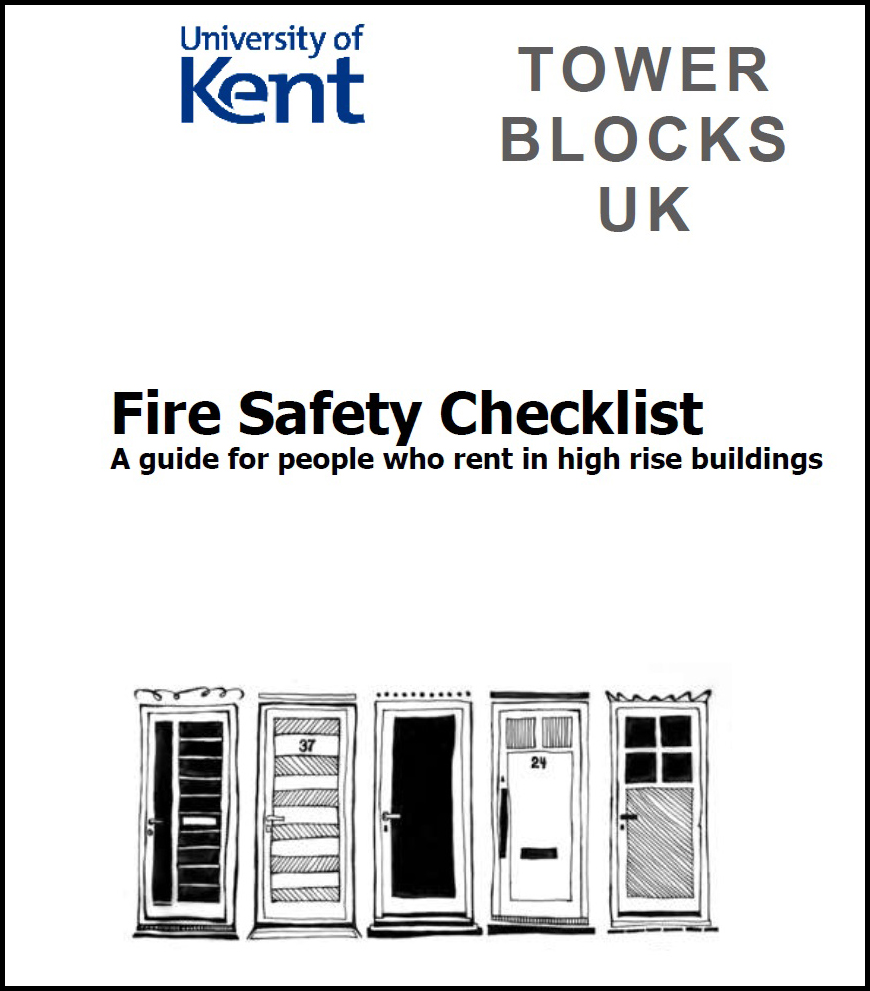
Kent housing law expert Professor Helen Carr addressed politicians, policymakers and leading fire safety professionals this week at the parliamentary launch of a crucial Fire Safety Checklist for tower block residents.
The Checklist is a new and practical tool that helps residents check the fire safety of their homes. It has been compiled by Professor Carr working in collaboration with Kent Law School colleague Dr Ed Kirton-Darling, Tower Blocks UK (a website for people who are concerned about tower block safety), Dr Stephen Battersby (a freelance Environmental Health and Housing Consultant), and with input from fire safety expert Phil Murphy.
The launch event, held at Portcullis House on Monday, was hosted by Karen Buck, MP for Westminster North and supported by Inside Housing trade magazine.
Speaking to an audience that included 12 MPs as well as representatives from Housing Associations and local authorities across the UK, Professor Carr said that although it was important for occupiers to develop “fire literacy”, empowering occupiers was not enough: ‘Freeholders, managers and housing professionals need to listen and respond to occupiers’ concerns. Inside Housing’s research into the response to the Lakanal house fire indicates that government also needs to prioritise the lives of occupiers. I am not convinced that, despite the horrors of Grenfell, the enduring culture of ignoring or patronising occupiers has changed.’
Professor Carr urged widespread use of the Checklist to help support necessary cultural change. She also reiterated a call for all laws relating to health and safety at home – not just fire safety – to be updated. Referring to previous research undertaken for Shelter (Closing the Gaps – Health and Safety at Home), Professor Carr said housing laws remain ‘out-dated, complex and patchily enforced’ and that tenants wanting to remedy defects face ‘numerous and often insurmountable’ barriers to justice. She added: ‘The best way to empower occupiers of poor-quality housing is enforceable rights to get remedial works done speedily, and we should not lose sight of that. We have to keep repeating it so that government hears it and updates the law.’
In a post about the launch on Kent Law School’s Countercurrents blog, Dr Kirton-Darling said: ‘Rights for an individual tenant to bring a claim are important, but it is also important to give tenants power to prompt the state to act on their behalf. As we have previously argued, the regulation of common parts creates problems, and when it comes to the vital matter of effective compartmentation, legal responsibility might be unclearly delineated. In addition, practical issues can cause difficulties with the enforcement of private rights, including the availability of legal aid and the potential absence of specialist housing lawyers or advisors able to act where a tenant is not able to navigate the complexity of bringing proceedings themselves. This is why we have worked with the Tower Blocks Network and others, including Dr Battersby and fire safety expert Phil Murphy, to develop the fire safety checklist.’
Professor Carr teaches undergraduate students at Kent Law School in issues associated with Land and Property Law. She has research interests in how law regulates those who are marginal to housing and property. Her interests go beyond security of tenure, considering, for instance, how law governs the distribution of housing resources, such as housing size, thermal comfort, building technologies, affordability and decency.
Dr Kirton Darling teaches in the fields of Family Law, Homelessness Law & Policy and Public Law at Kent. He has ongoing research projects which focus on health and safety in housing, homelessness, and investigations into contentious death. Last year, he authored two articles for the Journal of Housing Law; one on ‘Fire in the High Rise: Governance, Ownership and Safety’ and the other on ‘Health and Safety at Home and paying for fire safety’.




